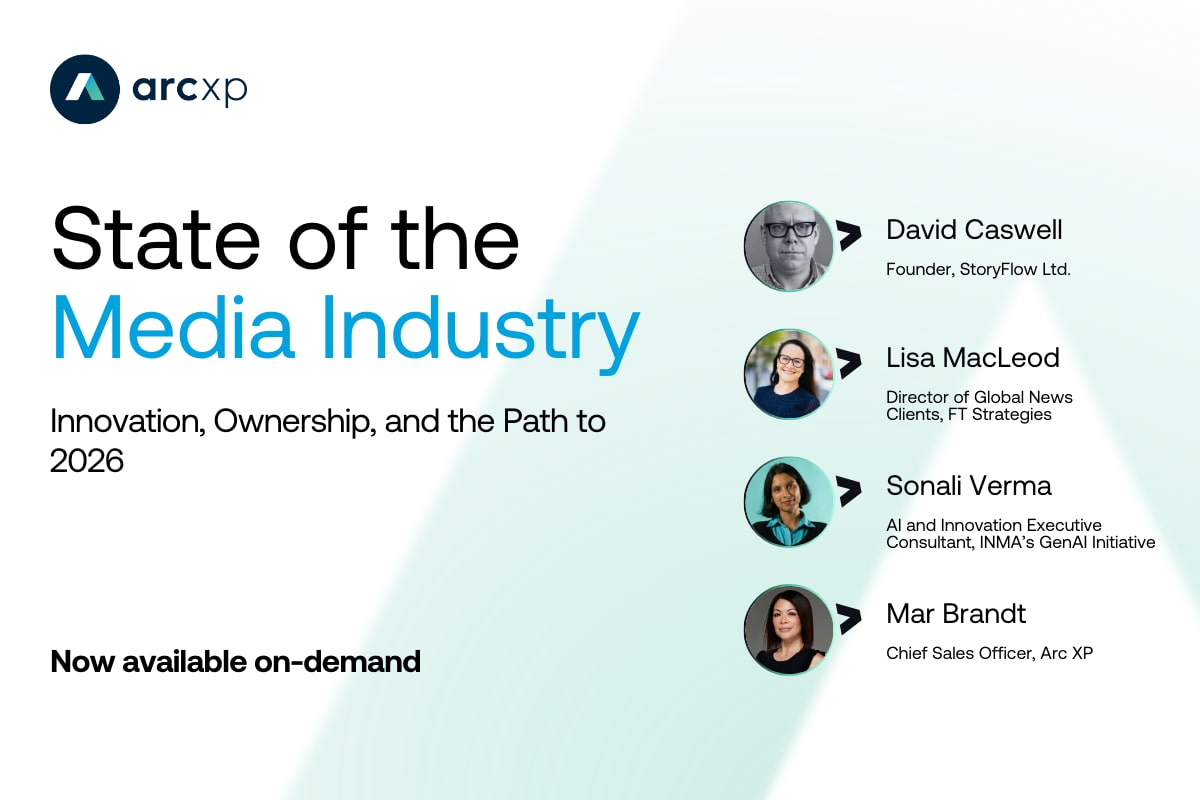The 7 essential roles of a content marketing team

Content marketing continues to be at the core of the B2B marketer’s playbook. Done well, content marketing builds authority and trust in a way that a sales rep’s cold calls (or more appropriately today, cold emails) never can.
Content marketing is a long-term strategy, one that is focused on building a solid relationship with your intended audience by delivering relevant, high-quality content in an engaging way. Creating the content that appeals to your audience on a consistent basis requires manpower.
In the second installment of our three-part series on building a successful content marketing program, we focus on the people needed to make the content marketing magic happen.
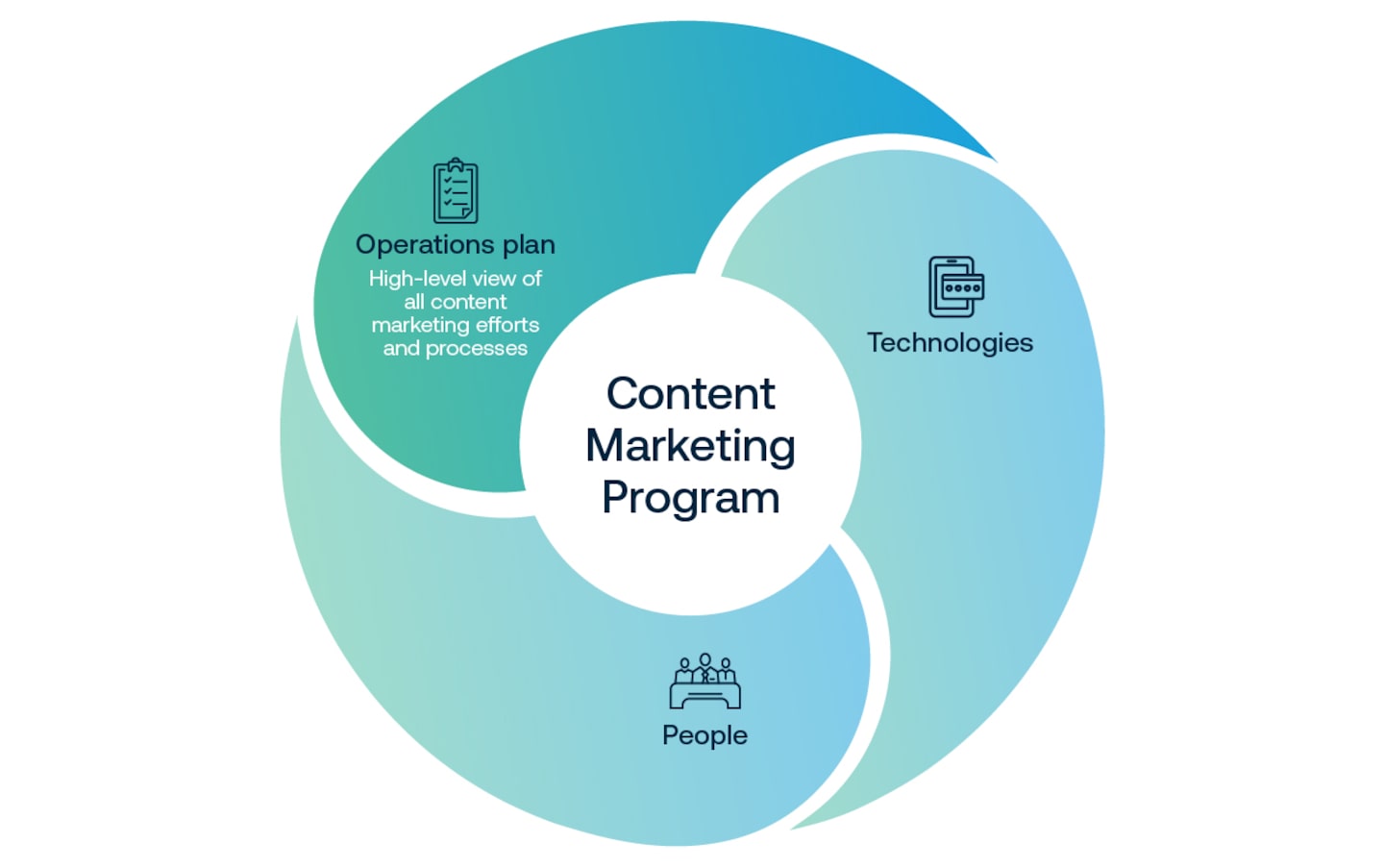
Why do you need a content marketing team?
While there is no perfect structure for a marketing team, it is critical that organizations focused on building an effective content marketing strategy provide the same dedication to building this strategic function as they do to their product and sales organizations, especially sales.
As B2B marketers well know, ownership of the marketing and sales funnel has flipped. Today, two-thirds of buyers prefer to self-educate through the discovery and consideration journey rather than engage with sales. This places demand generation squarely in marketing’s lap.
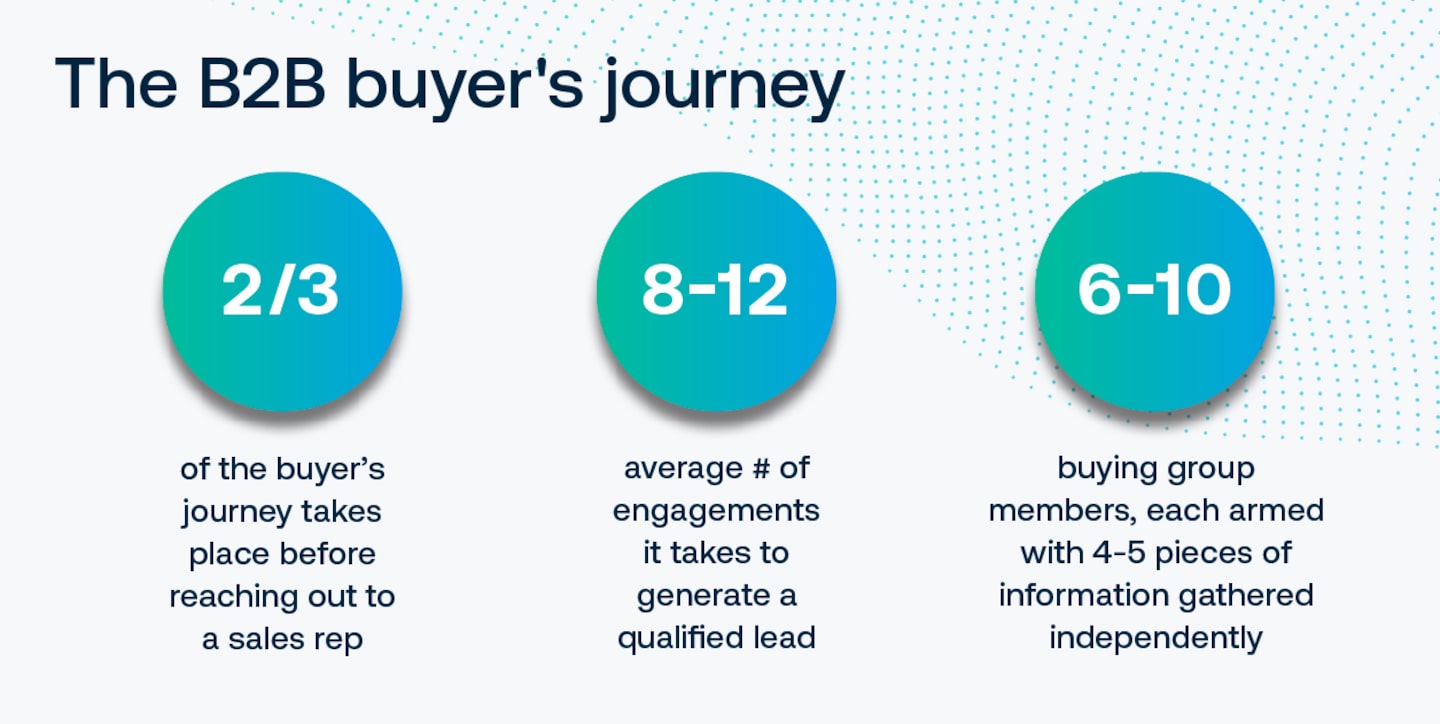
Creating the content that will attract buyers and move them through the funnel requires B2B marketing teams to employ individuals dedicated specifically to content production and deployment.
So what does a content marketing team look like? This is one of the most frequently asked questions fielded by Robert Rose, Founder and Chief Strategy Officer of The Content Advisory.
According to the Content Marketing Institute (CMI), 59% of B2B teams have five or fewer full-time workers who manage all the content responsibilities.
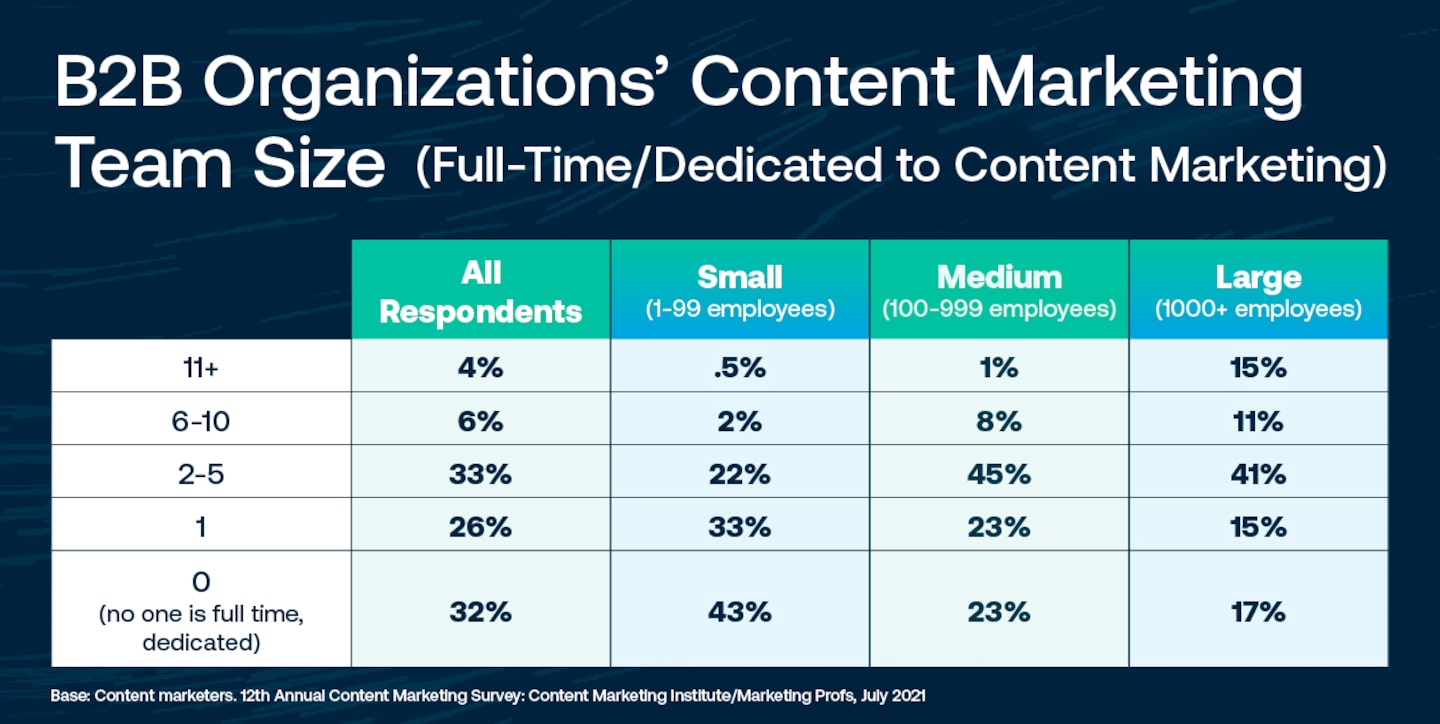
While the size and make-up of your own content marketing team is determined on your goals and budget resources, there are seven roles CMI has identified as being important to the function of content marketing within a business.
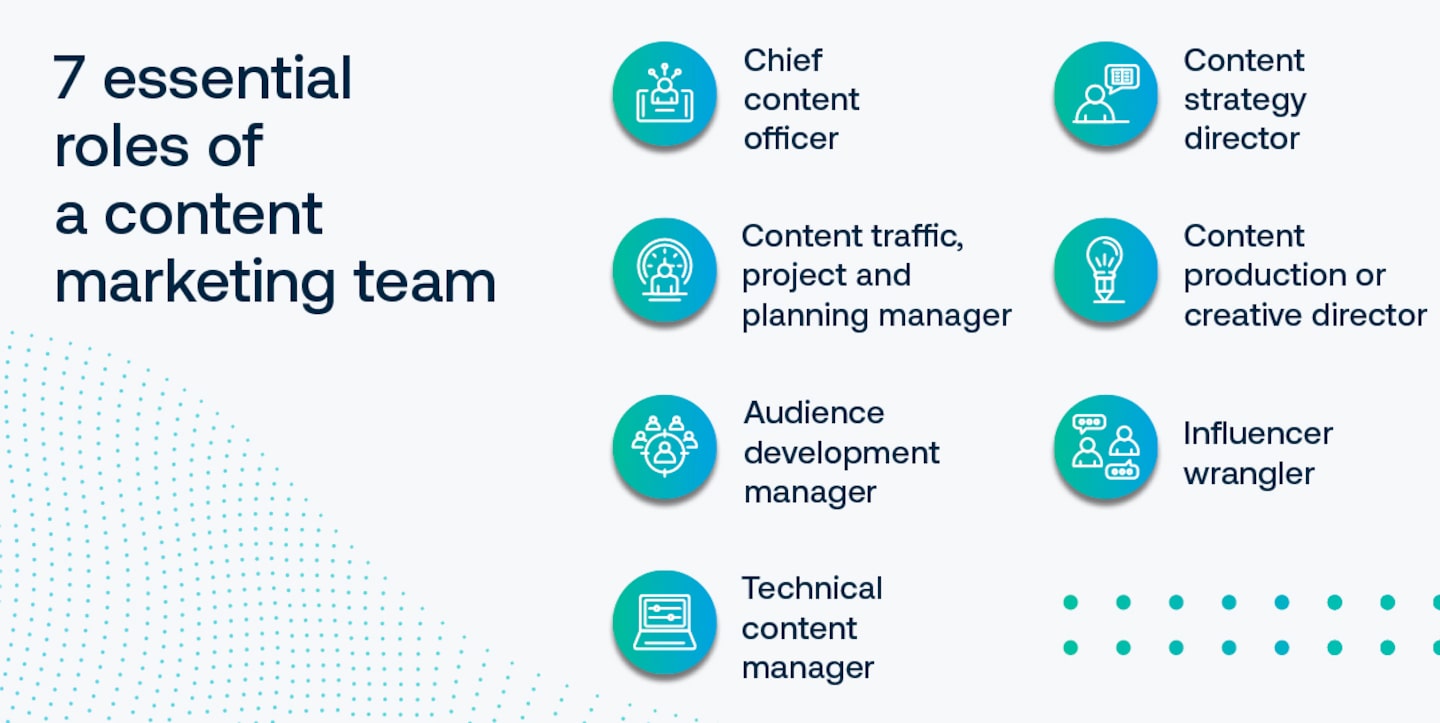
Chief content officer
- Sets the overall content marketing strategy and mission statement
- Acts as a bridge to other departments
- Chief storyteller: make sure brand stories remain consistent and make sense to the audience(s)
Content strategy director
- Owns the user experience and content management system
- Handles back-end duties (flow of content, taxonomies, metadata strategies and governance)
Content traffic, project and planning manager
- Focuses on day-to-day operations of the editorial platform
- May also be responsible for developing and managing production flow and monitoring and updating processes
Content production or creative director
- Manages how content assets should look
- May also lead your team of creative specialists
Audience development manager
- Develops subscription assets (direct mail lists, email lists, social media)
- Handles paid and earned promotional efforts for the content
Influencer wrangler
- Maintains and manages relationships with external subject matter experts, influencers, and other external teams
Technical content manager
- Facilitates the team’s use of tools and technologies involved in their work (such as a content management system or digital experience management platform)
Fitting into the broader marketing organization
Not every team will not be able to hire a dedicated person for each of these roles. But understanding their purposes will help you determine the best way to divide the responsibilities among your staff. It will also surface where roles can be supported by more traditional marketing, technology, or even operational professionals and identify coverage gaps that you may need to fill with external talent — such as freelancers or an agency.
When these responsibilities overlap opportunities exist, how do you decide how much of a person’s bandwidth needs to be committed to the content marketing role? According to Rose, that depends on how much content marketing makes up your portfolio of integrated marketing and communications.
That said whether a content marketing role is filled with a dedicated individual or part of other job aspects supporting the business, the content marketing responsibilities must be positioned as being equally as important in that person’s role and not an addition to their regular day job. Not creating and carrying through this commitment is where Rose says he sees most businesses fail with content marketing.
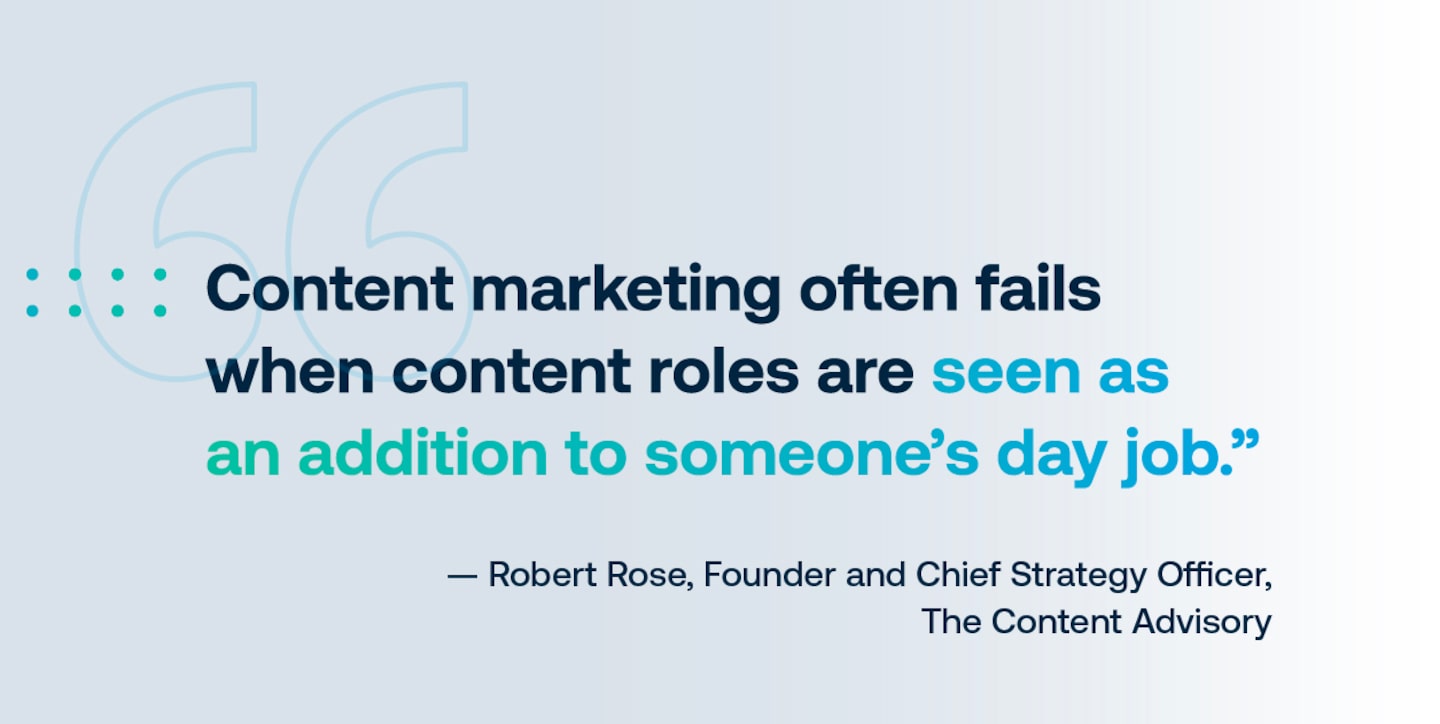
Where do we go from here? To the final installment of our three-part series where we explore the technologies needed to ensure that your content engine has the power to run as planned.
Recent resources



